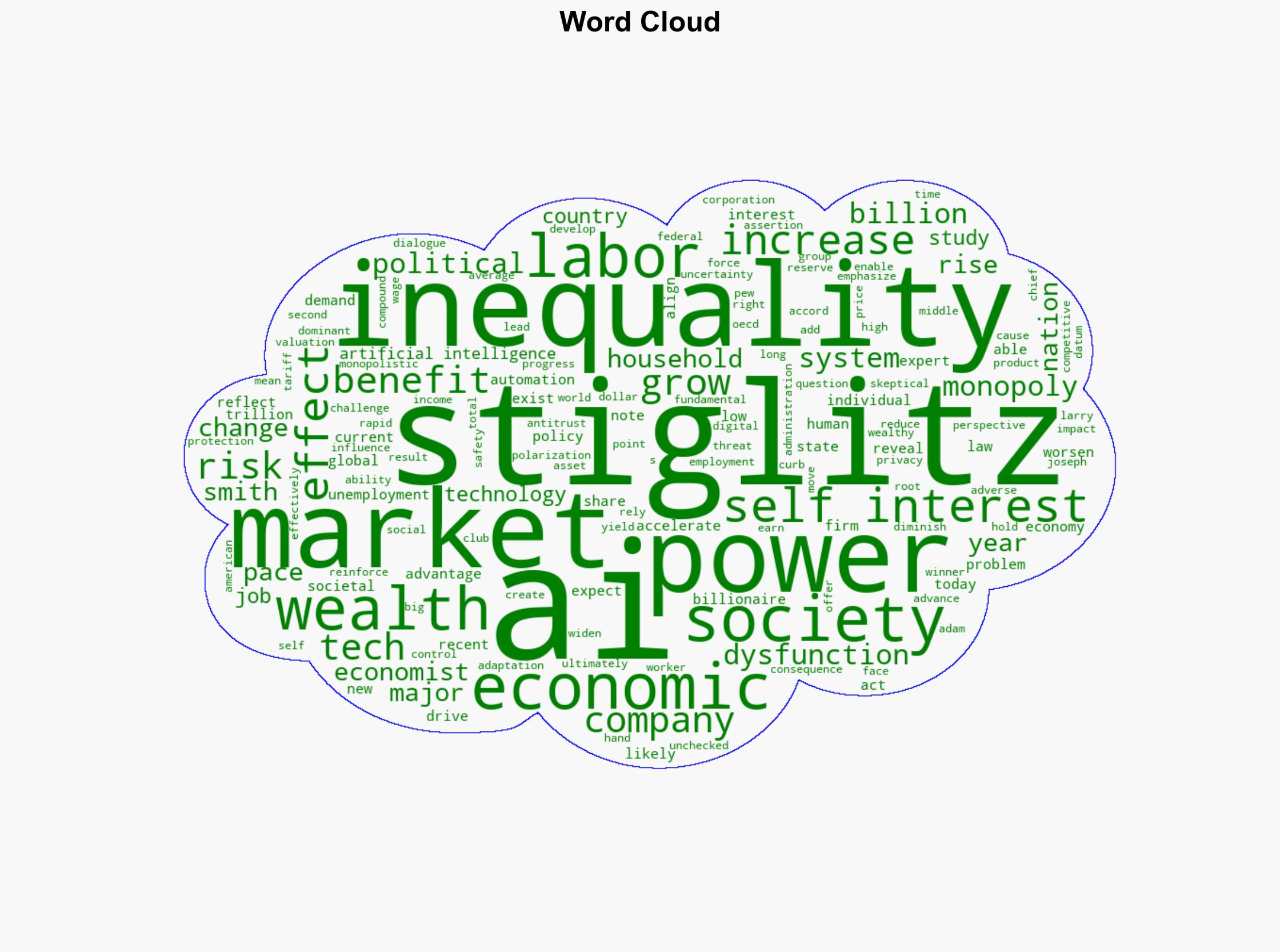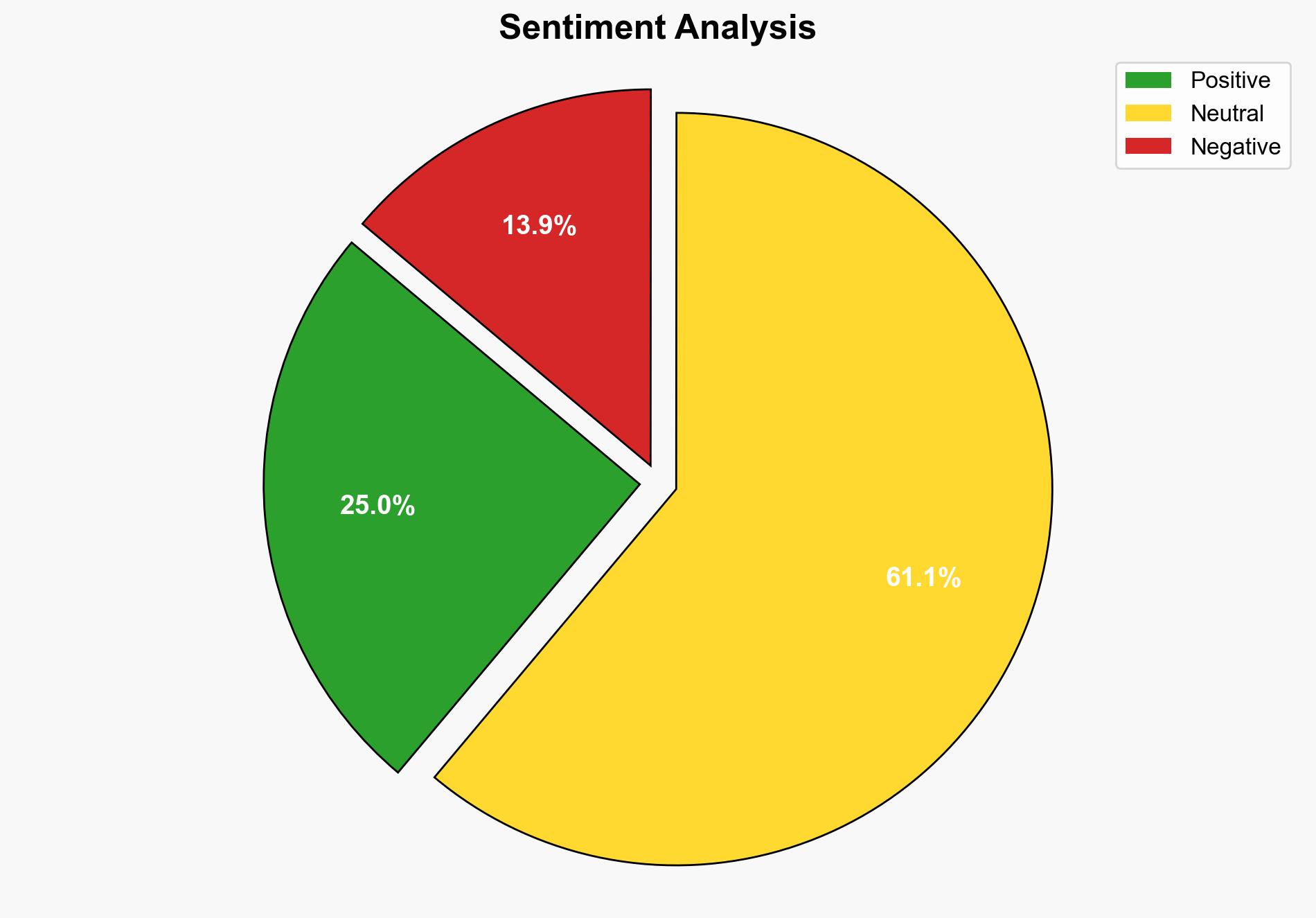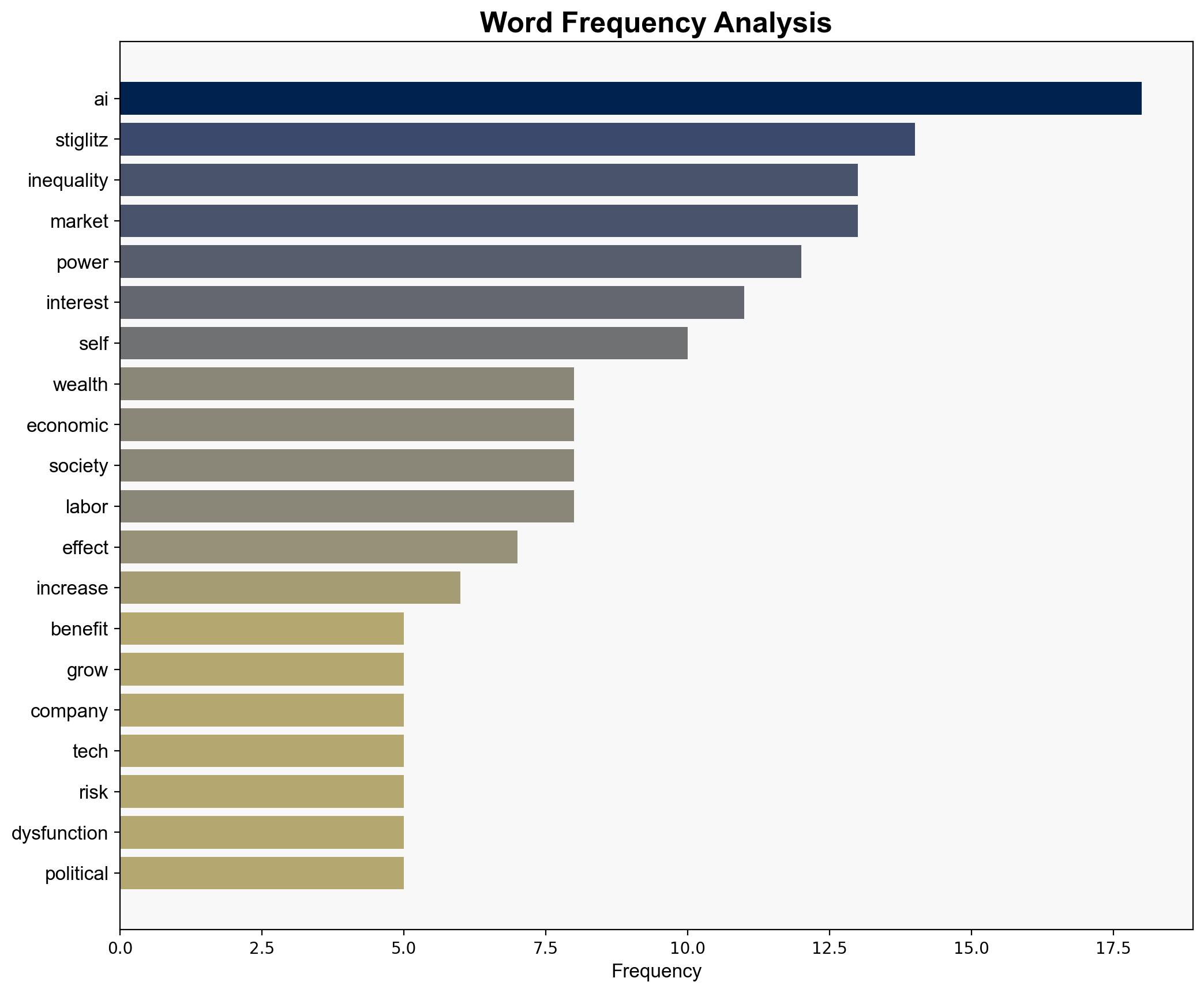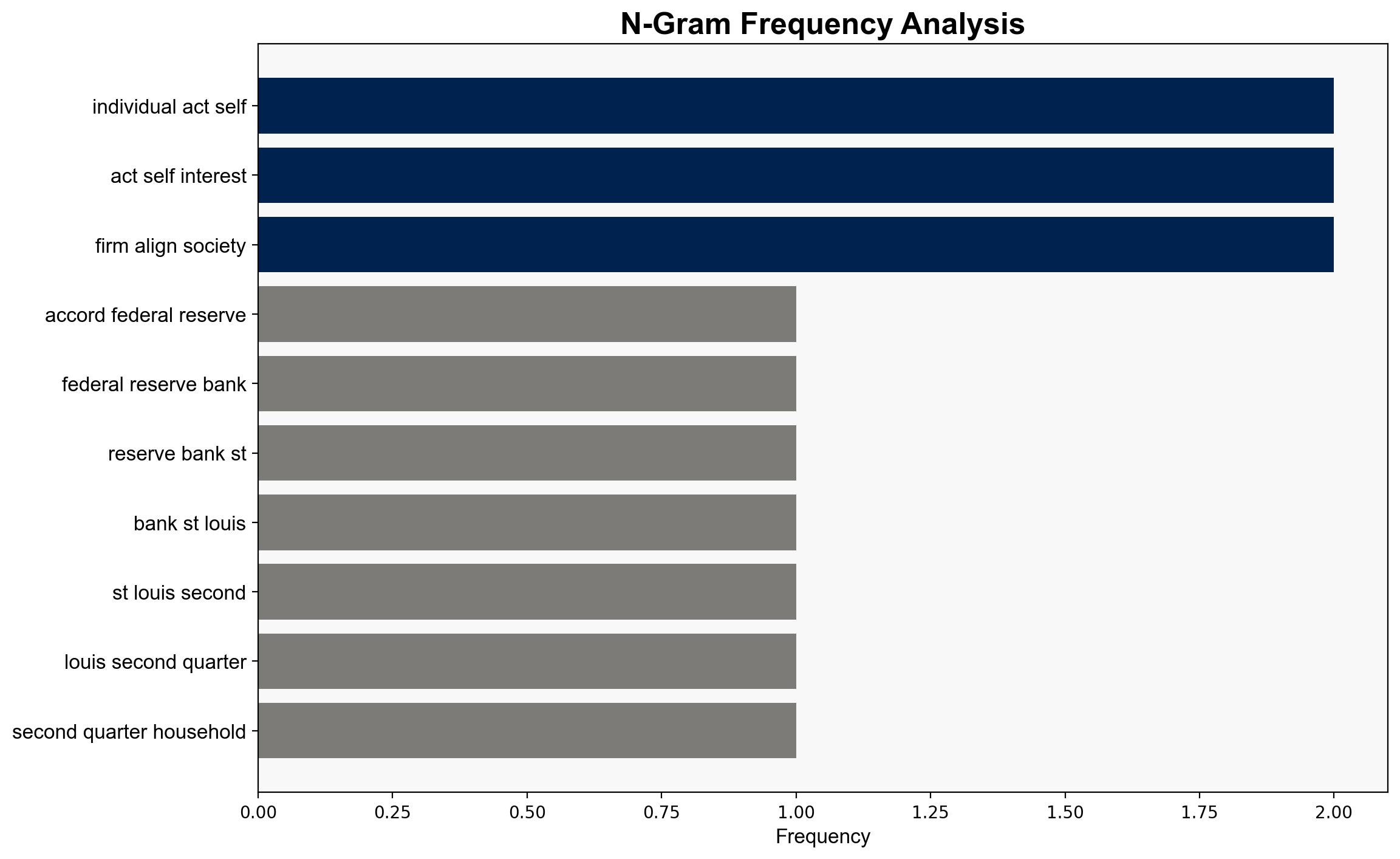Joseph Stiglitz Warns Of The Looming Inequality Amid AI Monopoly Power – Forbes
Published on: 2025-04-13
Intelligence Report: Joseph Stiglitz Warns Of The Looming Inequality Amid AI Monopoly Power – Forbes
1. BLUF (Bottom Line Up Front)
Joseph Stiglitz highlights the potential exacerbation of economic inequality due to AI’s monopolistic tendencies. The concentration of wealth among the top 10% of households, controlling 67% of total wealth, contrasts sharply with the bottom 50% holding only 2.5%. Stiglitz warns that AI could further consolidate power, undermining economic fairness and democratic stability. Immediate attention to regulatory frameworks and equitable AI deployment is crucial to mitigate these risks.
2. Detailed Analysis
The following structured analytic techniques have been applied for this analysis:
General Analysis
The disparity in wealth distribution is stark, with the top 10% of households averaging $6.9 million in wealth compared to $51,000 for the bottom 50%. Stiglitz argues that AI’s rapid advancement could intensify this inequality by empowering a few dominant corporations. This scenario challenges Adam Smith’s notion of self-interest benefiting society, as the current economic landscape does not align with his ideal of competitive market forces curbing exploitation. Stiglitz’s perspective suggests that unchecked AI development could lead to societal polarization and political dysfunction.
3. Implications and Strategic Risks
The increasing concentration of wealth and power poses significant risks to national security, regional stability, and economic interests. The monopolistic control of AI technologies by a few corporations could lead to:
- Heightened economic disparities and social unrest.
- Potential erosion of democratic institutions and processes.
- Increased vulnerability to cyber threats and data privacy violations.
4. Recommendations and Outlook
Recommendations:
- Implement regulatory measures to ensure fair competition and prevent monopolistic practices in the AI sector.
- Promote transparency and accountability in AI development and deployment.
- Encourage public-private partnerships to foster inclusive economic growth and equitable AI benefits.
Outlook:
Best-case scenario: Effective regulations and collaborative efforts lead to balanced AI development, reducing inequality and enhancing societal well-being.
Worst-case scenario: Unchecked AI monopolies exacerbate wealth disparities, leading to increased social tensions and political instability.
Most likely outcome: Incremental policy adjustments and stakeholder engagement gradually address inequality, though challenges persist.
5. Key Individuals and Entities
The report mentions significant individuals and organizations, including Joseph Stiglitz and Adam Smith. Their insights and historical perspectives provide a critical lens through which to evaluate current economic and technological trends.





